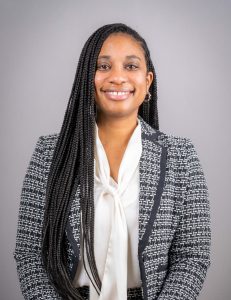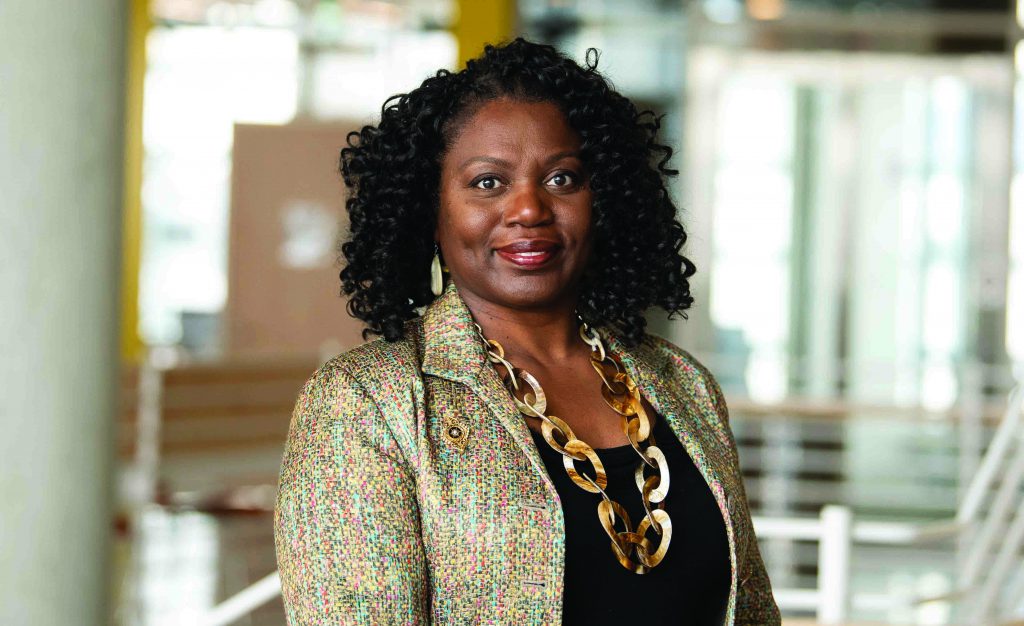By Joy Gaslevic
 We hope that you are enjoying reading about so many UBalt Law alumni who are now leading the way in the Maryland and D.C. legal communities and beyond. We also hope that you enjoyed learning more about Dean LaVonda Reed, UBalt Law’s wonderful new leader, who will lead our alma mater into the future.
We hope that you are enjoying reading about so many UBalt Law alumni who are now leading the way in the Maryland and D.C. legal communities and beyond. We also hope that you enjoyed learning more about Dean LaVonda Reed, UBalt Law’s wonderful new leader, who will lead our alma mater into the future.
Our Leadership Issue highlights just a few of the leaders in our community. We know there are many more, and we want to take this opportunity to celebrate our entire vast network of alumni who are leading and making a difference in so many fields, including legal practice, public service, nonprofits, higher education, and business.
At the law school, our amazing students also continue to learn key leadership skills starting at orientation – they, too, will most certainly go on to lead. Our alumni network of leaders is impressive and growing, and UBalt Law will help continue that growth.
As we prepared to celebrate new leadership at UBalt Law and all of our alumni leaders, we started thinking about how lawyers are called upon in great numbers to lead. Whether in practice working with clients and colleagues, or in leadership positions in business and nonprofits, those with a J.D. are often seen as leaders and tapped for leadership roles and positions.
Leadership is a journey, and leaders need learning, mentorship and reflection opportunities along the way. During my own leadership journey – one that began at UBalt Law and most recently led me back to a leadership role at our alma mater – I’ve benefitted from all of the above. Not all lawyers in or considering leadership roles receive the benefit of formal learning and reflection opportunities. In the coming years, UBalt Law will look to offer more opportunities to empower our community members to envision themselves as leaders at every level, and to unlock and develop their leadership potential.
As a first step, whether you are thinking about embarking on your leadership journey or are already in a leadership role, we hope you will join us for our “Lawyers as Leaders” lunch-and-learn series this fall. This three-part series will cover essential leadership topics such as authentic leadership style (Panel 1 – September 13; learn more and register); change management (Panel 2 – October 11, learn more and register); and building and maintaining a positive climate and culture (Panel 3 – November 15, learn more and register).
Our panelists are an impressive group of alumni leaders ready to share their wisdom. Special thanks to two alumni leaders who have worked with me to build out the series and who will moderate panels – D. Jill Green (J.D. ’94; Panel 1, September 13), and Laurie Lyte (J.D. ’92; Panels 2 and 3, October 11 and November 15). Both have deep leadership experience and passion for developing leaders, and we are so grateful they have brought their energy and expertise back to their alma mater.
Congratulations again to all of our alumni leaders – those who are featured in the Leadership Issue and beyond, including all of our Lawyers as Leaders panelists and moderators. Thank you for all you are doing to make your community a better place. Your journeys are inspiring and continue to grow our pride in UBalt Law – a law school where you learn to practice and lead. To all of our alumni leaders and aspiring leaders, let’s continue on our leadership journeys together by continuing to learn from each other and refine our skills. Looking forward to seeing you at our fall Lawyers as Leaders lunch-and-learn panels.
Joy Gaslevic, J.D. ’99, is associate dean for administration at the UBalt School of Law.

 Since 1925, the School of Law has produced thousands of leaders for our city, state and nation. While the face of the legal field is always changing, from the integration of artificial intelligence to cybersecurity regulation, the goals of our applicants – and UBalt Law — remain the same. Our law school is increasingly reflective of the communities we serve, and it’s exciting to see how this impacts legal education and the legal profession.
Since 1925, the School of Law has produced thousands of leaders for our city, state and nation. While the face of the legal field is always changing, from the integration of artificial intelligence to cybersecurity regulation, the goals of our applicants – and UBalt Law — remain the same. Our law school is increasingly reflective of the communities we serve, and it’s exciting to see how this impacts legal education and the legal profession. 